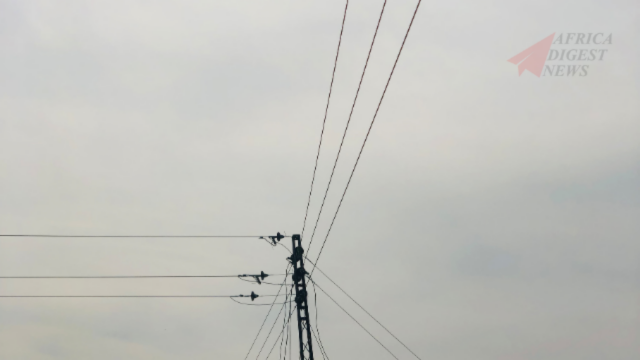South Africa has a climate law. A shiny new piece of legislation. A supposed step forward in the global fight against climate change. But what if I told you this law changes… very little?
Tonight, on The Fine Print, we ask a simple question:
Why is South Africa passing green laws while burning more coal?
Let’s begin with the facts.
South Africa is the biggest emitter of greenhouse gases in Africa. The bulk of its electricity, nearly 80%, still comes from coal. And yet, in 2024, the country passed the Climate Change Bill. It was hailed as a milestone. Government officials called it “historic.” They said it would position South Africa as a leader in climate action on the continent.
But here’s the problem: the same government continues to approve new coal-fired power stations. This is not a conspiracy theory, its energy policy.
South Africa’s Integrated Resource Plan, the government’s official energy blueprint, still includes coal. Eskom, the embattled power utility, is planning to extend the life of ageing coal plants. Some are being refurbished. Others are being considered for future operations.
The contradiction is hard to ignore.
On paper, South Africa supports the Paris Agreement. It has committed to cutting emissions. It even received $8.5 billion in climate finance from developed nations to help with its “Just Energy Transition.” But how do you reduce emissions when your grid is still powered by coal?
You don’t. That’s the reality.
A new analysis from climate policy experts confirms it. They say the country’s current policies are “insufficient.” Emissions will not drop fast enough. The 2030 targets? Out of reach. The 2050 net-zero goals? Aspirational, at best.
So what’s really going on here?
One word: Loadshedding.
Also read: How Huawei’s Smart Solar Solutions Are Powering Africa’s Renewable Future
South Africa’s power grid is collapsing. Blackouts are routine. Businesses run on generators. Hospitals rely on backup systems. Households live with candles and battery packs. In this environment, the government is desperate. Desperate to keep the lights on even if it means burning more coal.
Coal, after all, is cheap. It’s domestic. And the infrastructure is already in place. But this short-term fix is a long-term disaster. Because while coal might power your fridge today, it’s melting the planet tomorrow.
Let’s zoom out.
Globally, coal is dying. In 2023, coal use in Europe dropped to levels not seen since the 1980s. In the US, coal plants are shutting down. Even China, the largest consumer of coal, is investing billions in solar, wind, and nuclear.
So why is South Africa moving backwards?
The answer is both simple and complicated. Corruption, policy paralysis, and vested interests.
Eskom has long been accused of mismanagement. Billions have been lost to fraud and inefficiency. The political will to dismantle coal interests is weak. And every delay in reform is a win for coal lobbyists.
This isn’t just an energy story. It’s a governance crisis.
Because you cannot legislate your way out of climate change. You need action. Real, difficult, expensive action.
So what should South Africa do?
First, stop the coal expansion. No more licenses. No more refurbishments. It’s time to let go.
Second, scale up renewables seriously. Not just wind farms for press releases. But massive, nationwide projects with battery storage, grid upgrades, and clear timelines.
Also read: Why Africa Isn’t Harnessing Its Desert Sunlight for Electricity And What It’s Costing the Continent
Third, fix Eskom. Break it up if necessary. Create competition. Invite private players. Decentralize the power grid. Give municipalities the power to procure their own energy.
And finally, be honest with the people.
Tell them that the transition will be hard. That coal jobs will be lost but new ones will be created. That blackouts won’t end overnight but the solution is not more coal, it’s smarter investment.
South Africa doesn’t need another climate law. It needs climate leadership.
Because laws can be repealed. Promises can be forgotten. But the damage to our atmosphere? That is permanent.
And the world is watching.



